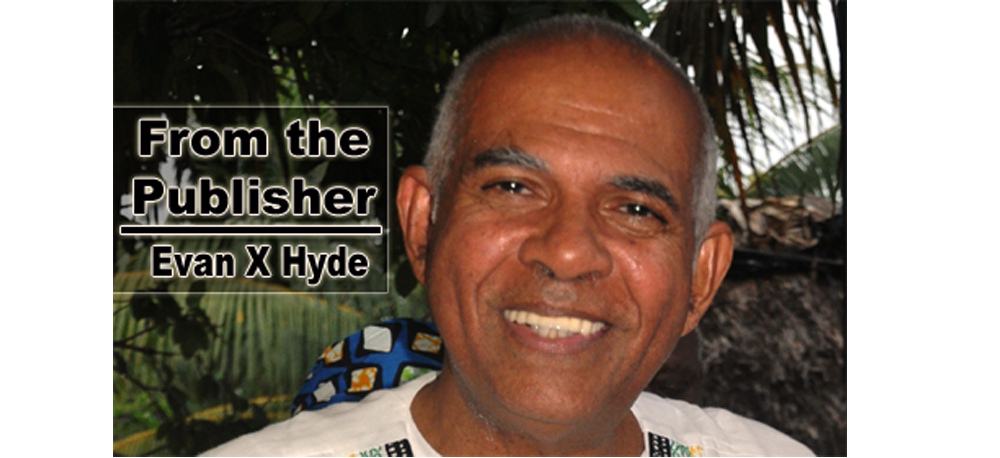To a great extent, the world is ruled by giant institutions called corporations. A corporation is a coming together of people who pool their money and other resources to achieve specific business/industrial purposes. We people of color on planet earth have relatively few corporations. It appears that we are too suspicious of each other to cooperate.
So then, the European peoples must be given credit for their success in organizing corporations and getting them to function, often internationally, with a minimum of friction. When there is friction, disputes are settled legally, internally. This ability to resolve conflict must be applauded, although we people of color are often the victims of the aforementioned corporations.
As a young high school student at St. John’s College, I remember the part of our history textbook which referred to the British East India Company. A few years ago, I learned that the British had exploited India to the tune of $35 trillion (U.S.) before the Indian people finally achieved independence in 1947. This exploitation was carried out primarily by the British East India Company.
In last weekend’s issue of The Reporter, Neri Briceño spoke in a categorical manner about why people like us Belizeans are not able to develop. He appeared to be saying that we are not opening up our country enough to corporations like Vulcan. I do not agree with Neri, because you cannot expect the same people who enslaved and exploited you to get you out of your post-colonial poverty.
Because the corporations control the international media, which are themselves corporations, there are disasters which occur in the world, like Fukushima and mad cow disease, which the corporations are able to drive into news oblivion.
Mr. Price famously said that “progress brings problems.” He was not referring to the problems of the world, but merely to development problems in Belize. But, we can apply his saying to the world, when we consider how dangerously close we are and have come before to nuclear destruction.
As I have said previously in this column, the peoples who have created these corporations, most successfully the Europeans, must be given their respect. At the same time, our students should be taught how ruthless and violent corporations were to our ancestors, and how they continue to violate our people.
In today’s world, we can research material at home that our generation used to have to go to the library to research. And even then, our generation could only access a small fraction of what our students can do today with a computer or a mere telephone.
I will close today with the beginning of Wikipedia’s discourse on the British East India Company. (There was also a Dutch East India Company, of which I knew nothing until I researched the British East India Company this Wednesday morning.) Apparently, other countries also had “East India” companies.
”The East India Company was an English, and later British, joint-stock company founded in 1600 and dissolved in 1874. It was formed to trade in the Indian Ocean region, initially with the East Indies (the Indian subcontinent and Southeast Asia), and later with East Asia. The company gained control of large parts of the Indian subcontinent and colonised parts of Southeast Asia and Hong Kong. At its peak, the company was the largest corporation in the world by various measures and had its own armed forces in the form of the company’s three presidency armies, totalling about 260,000 soldiers, twice the size of the British Army at the time.
”Originally chartered as the ‘Governor and Company of Merchants of London Trading into the East Indies,’ the company rose to account for half of the world’s trade during the mid-1700s and early 1800s, particularly in basic commodities including cotton, silk, indigo, dye, sugar, salt, spices, saltpetre, tea, and later, opium. The company also initiated the beginnings of the British Empire in India.
”The company eventually came to rule large areas of India, exercising military power and assuming administrative functions.”

